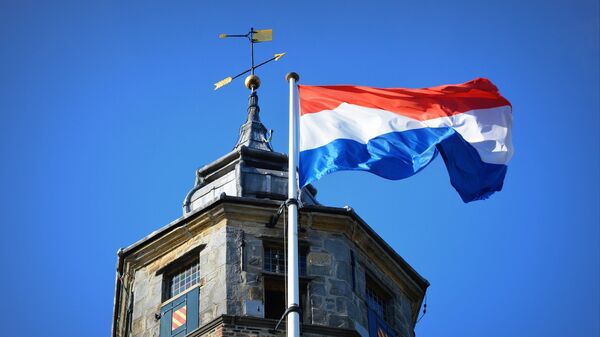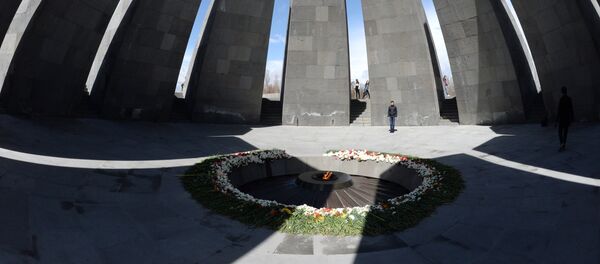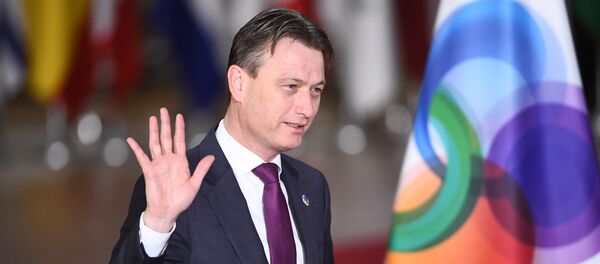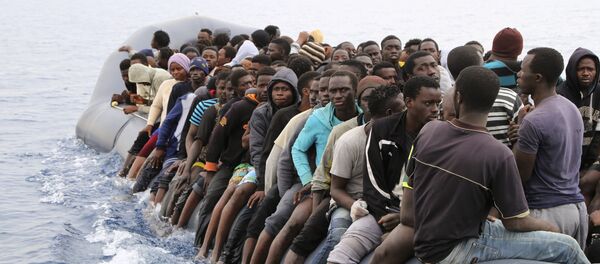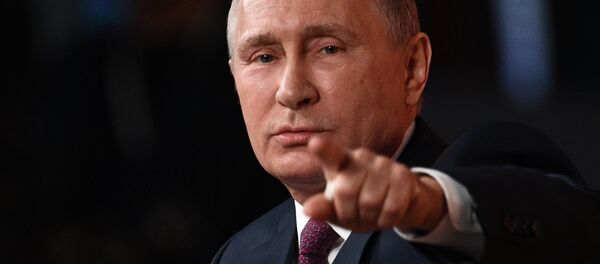Complex Dutch Political Landscape
There are 14 parties represented in the parliament, all of them having less than 20 percent of public support.
Surveys, particularly those by the Peil.nl pollster, suggest that at the next legislative election, which will be held in 2021, the biggest People’s Party for Freedom and Democracy (VVD) will receive 18 percent of the votes.
According to polls, the FVD is also ahead of the right-wing Party for Freedom (PVV) led by Geert Wilders, which is now in coalition with the VVD.
Many other parties are expected to gain between 8 and 10 percent of ballots.
Such high level of support for the Eurosceptic forces is unusual for the Netherlands, a nation which founded the European Community in 1957, and has traditionally supported pro-European sentiments.
The party also strives for larger gains in the upcoming 2019 local elections in the Netherlands, advertising to attract candidates for running in the vote.
Populism Program
Founded as a think tank, the FVP actively campaigned against the European cooperation agreement with Ukraine in a referendum on the issue held in the Netherlands in 2016. The FVP became a political party the following year.
On its website, the party advocates for shutting borders for economic migrants and temporarily accepting refugees until peace is restored in their countries of origin, but repatriating them subsequently.
Moreover, the FVD stresses the need to reduce the tax burden for Dutch citizens and to simplify the existing taxation system.
The party wants local mayors and the prime minister to be elected by the public directly, and not appointed as a result of national and local legislative votes.
READ MORE: Stuck in an Anti-Russia Rutte: Dutch PM Rewrites Modern History
The FVD also calls for a government which is not composed of politicians, but includes experts in their areas. Top officials should be reappointed on their positions each time a new government is formed in the FVD's point of view.
The party says that it is fighting against the presence of the same traditional Dutch parties in the parliament for decades, "choking democratic life" in the country.
The party also strives to repeat best practices of other countries in various areas, such as the effectiveness of the job market in Denmark or the "green card" migration system in the United States.
The movement appeals to the young voters by legalizing certain sorts of drugs.
Moreover, the party wants the Netherlands to comply with the defense budget target of 2 percent of the national GDP set out by the North Atlantic Treaty Organization (NATO) to its member states.
Criticism From Right-Wing Parties
The FVD has been considered as a less extreme right-wing movement by various political forces in Europe, thus being less frequently the victim of the virulent attacks of the left and extreme left forces than other populist parties in the EU member states, such as the PVV in the Netherlands, the Alternative for Germany (AfD), Front National in France, or Vlaams Belang (VB) in Belgium.
However, the party has faced criticism by the right-wing forces.
READ MORE: Turkey Summons Dutch Charge D'affaires Over Armenian Genocide Vote
"Baudet is a media phenomenon in the Netherlands. For me, he is ‘used’ by the politically-correct media to weaken Wilders and the PVV. Baudet splits the patriotic, right camp in two. Wilders and Baudet are connected like communicating vessels. All the [parliament] seats that Wilders would lose, go to Baudet. It is the tactics of ‘divide and rule’ applied by the traditional parties," Filip Dewinter, a member of the VB party and a member of the federal parliament in Belgium.
In Belgium, the situation is quite similar with the New Flemish Alliance "hyped by the media in order to weaken the Vlaams Belang," Dewinter continued.
"I do not expect a coalition [of FVP] with the prime minister, conservative Mark Rutte. He wants to divide the right as much as possible, preferring two small parties fighting each other than a large threatening one," the Belgian parliamentarian suggested.
Dewinter also noted differences in approach to various issues, as well as content of the programs of Wilders’ and Baudet’s parties.
"Wilders rightly sets the priority on Islam and immigration. Much less so for Baudet. The difference is more of image and perception. They reach different audiences. Wilders is more attractive to the working class, while Baudet is more attractive to intellectuals and the middle class," Dewinter explained.
The Belgian parliamentarian suggested that Baudet had more liberal views while Wilders’ policies are more socially oriented.

